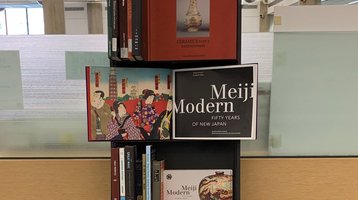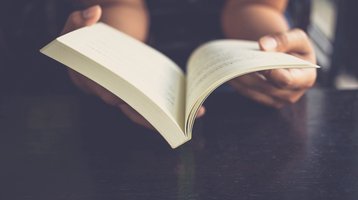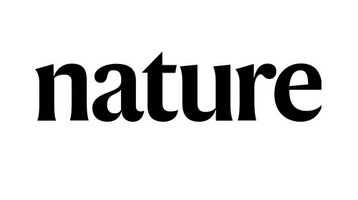The Reg at 50: A hub for innovation at a time of change
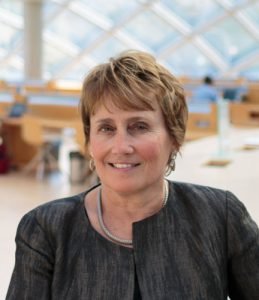
Updated 10/9/2020
As we work our way through the challenges of COVID-19 and quickly adjust our services to meet the evolving needs of our community, I find myself simultaneously reflecting on another event that points to change over time: the 50th anniversary of the Joseph Regenstein Library.
Regenstein Library was dedicated on October 31, 1970. Over the last 50 years, the Library has contributed and responded to tremendous shifts in the ways knowledge is expanded and shared, scholarly disciplines are shaped, students are transformed, and intellectual communities are convened and strengthened.
Architect Walter Netsch and Herman Fussler, Director of the University of Chicago Library, created Regenstein to be a massive yet flexible hub of intellectual discovery and rigorous learning that would meet the University of Chicago’s evolving needs over time. In its early years, Regenstein united many scattered departmental collections into a central location—enabling interdisciplinary research and empowering faculty and graduate students to generate groundbreaking scholarship. As a result of thoughtful renovations over the decades that met changing needs, large reading rooms and study spaces spread throughout the building have made the Library a central place on campus where students could come together to interact with collections and study both alone and in groups. Over its 50 years, the Regenstein Library has remained a source of intellectual inspiration.
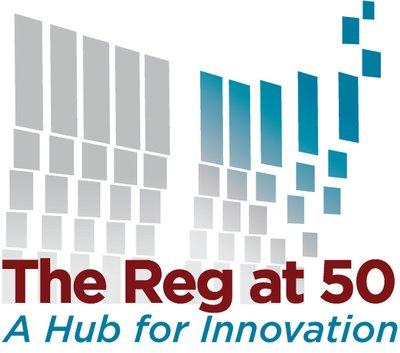
Collections that began primarily in print and manuscript form have expanded over time to include manifold media from microforms to CDs to digital journals and streaming video. Over its history, the Library has adopted and customized new technologies and developed numerous systems for enabling local and international research. For example, in the early days of library automation in the 1970s, the Library developed its own mainframe-based system (Library Data Management System or LDMS); today we are using one open-source library management system that we developed in partnership with some of the nation’s leading university libraries, and are now partnering internationally on a next-generation system. Our Center for Digital Scholarship helps faculty and students explore new methodologies, analyze complex data, visualize theoretical and spatial relationships, and share and preserve research results.
For decades, Regenstein has been a central site for distinctive, world-class humanities, social sciences, business, and special collections, while our expert staff ensures the Library experiments and excels in a changing environment. Today, the Library acts as a hub connecting people and ideas; a catalyst for discovery, learning, and scholarly breakthroughs; and a great intellectual convener. We are a center of student learning, a leader in a network of research libraries, a growing center for digital scholarship, and a launch pad for community engagement. This was true before COVID-19 reached us, and it continues to be true today, as we are providing an evolving set of services that is responsive to faculty and student needs even at those times when the Library has had to temporarily close its doors to users during the pandemic.
In March, April, and May, because of past investments in technology, digital resources, and strategic partnerships, and through the expertise and dedication of staff working creatively under rapidly changing circumstances, we were able to quickly pivot to providing resources and services entirely remotely. We are giving our faculty, students, and staff access to 5.4 million electronic books, including many made temporarily available through our participation in the HathiTrust Temporary Access Service; over 220,000 electronic journals and newspaper titles; 1372 databases; and 1100 streaming videos. Our librarians are working online to answer our patrons’ questions and provide specialized consultations, instruction sessions, and workshops through email, chat, and video conferencing.
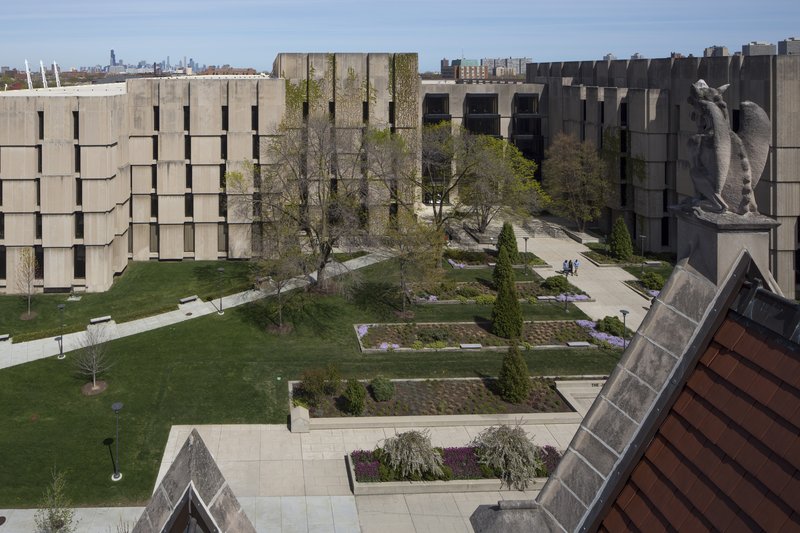
And when we were more recently able to bring some staff back on site, we launched a new Paging & Pickup service for loaning physical resources, and re-started Scan & Deliver to provide digital access to articles and chapters from our print collections. As the University offers hybrid learning in Autumn Quarter—simultaneously serving faculty and students located on and off campus—we are offering robust online instruction and consultation programs, course reserves, and digital scholarship services regardless of location, as well as the paging and pickup and scanning services that give patrons access to our print collections. We are piloting services that allow UChicago students, faculty, and staff to book a seat for quiet individual study or a computer workstation in the Library, to return books to Regenstein without an appointment, and to obtain physical materials through Interlibrary Loan, and we will continue to expand and adjust our services as conditions and our community’s needs change.
As proud as we are of so many aspects of the Library’s past and present, we know that we are also flawed. As our country confronts its long history of systemic racism, we understand that Black members of our community, in particular, have not always found the Library to be a welcoming and safe space. As President Zimmer and Provost Lee have stated, “The University has made progress in recent years to address problems of racial bias and inequities on our campus, and to strengthen our relationship with our neighboring communities. However, as University leaders we recognize that there is more to be done. We believe that doing so requires rigorous study, discussion, and actions.”
The Library is committed to participating in this work to address the racism that permeates our society and to building a stronger, more inclusive University of Chicago Library. We have taken some preliminary steps in this direction. Among them, we made cultivating an inclusive community one of our strategic directions for 2020-2023 and established a Diversity and Inclusion Team to provide leadership and support to advance our strategic directions, including education and development opportunities across all levels of the Library and its community. Among its initial activities, this Team has analyzed responses to a survey of all Library staff, gathering ideas for Diversity and Inclusion initiatives at the Library. We will be drawing on this analysis and are engaging a consultant to help us develop an action plan that takes on these vital issues.
The lessons we are learning now will be vital to us as we move beyond COVID-19 into Regenstein’s next 50 years.
As we mark the 50th anniversary of Regenstein during this academic year, we are planning articles and virtual gatherings that will explore Regenstein’s past, present, and future from the perspectives of scholars, students, alumni, and staff. Our first virtual event featured Dean John Boyer in conversation with Dean Anne Robertson, discussing “How Regenstein Library Ushered in a New Era of Scholarly Distinction” on September 22. A video of the event is now available.
UChicago alumni, faculty, students, staff, and visiting researchers of the last 50 years are also encouraged to send their stories, photos and ephemera documenting Regenstein’s history to the Library for preservation in the University of Chicago Archives. Contact universityarchives@lib.uchicago.edu if you would like to share your history with Regenstein.
